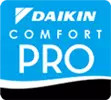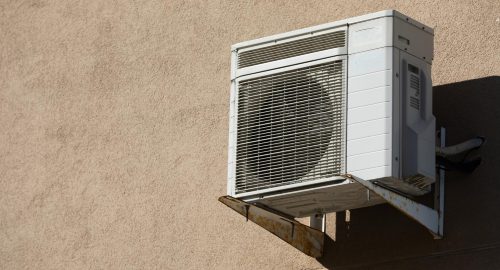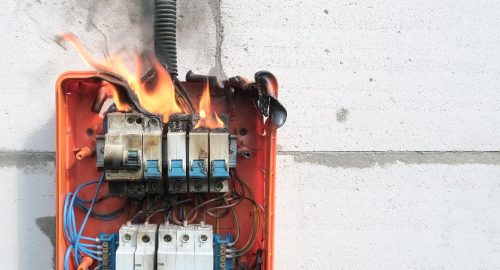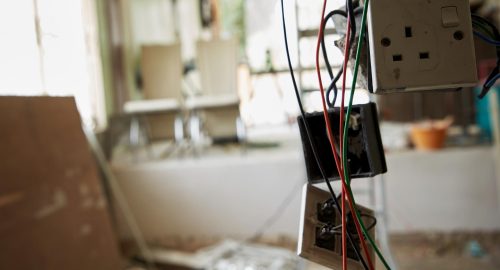How have you been prepping your home for spring? We often neglect indoor air quality, but this year it’s even more important as we spend additional time in our homes in the face of COVID-19. As you prepare for the cooling season, be sure to incorporate these springtime tips for indoor air quality.
Simple Tips Around the House
Spring cleaning gets you off to a good start but maintaining indoor air quality takes ongoing practice. Here are some things you can do throughout the cooling season to help:
Mop, Dust, and Vacuum
This year-round chore becomes extra-important in springtime. As we open up the home with the warmer weather, more allergens, dust, and other irritants enter the home and settle on its surfaces. Plan to clean one to two times per week at least, depending on your sensitivities.
Use Natural Products
Many cleaning, disinfecting, and personal care products contain Volatile Organic Compounds (VOCs) that negatively impact your home’s air quality. Look for natural products – check labels and ensure they’re eco-friendly, non-toxic, and safe for indoor use.
Clean Bathroom Exhaust Fans
Bathroom exhaust fans assist with odor and moisture control, which helps prevent mold and mildew. Ensure the power is off, remove the cover, and wash it with soapy water. Before returning the cover, clean dirt or debris off the fan blades with an old toothbrush.
Remove Shoes After Entering the Home
Dirt, dust, and other airborne particles cling to you when you are outside. Don’t wear shoes outdoor shoes inside and track them around the home. For extra precaution, you can also remove clothing once you get home, too.
Clean Floor Registers and Return Air Vents
Dust entering your HVAC system can negatively affect air quality and energy efficiency. Help prevent it by cleaning floor registers and returning air vents with a vacuum. For a deeper clean, remove the vent, brush the individual grill spaces with a rag and butter knife, and then rinse with warm, soapy water before returning.
Maintain a Clean Air Filter
Keep your system running cleanly and efficiently by staying on top of cleaning or changing the filter. Replace the filter every one to three months, or clean monthly if re-usable.
Helpful HVAC Solutions
While these measures definitely help, they aren’t foolproof and can be hard to keep up with on a consistent basis. Stafford Home Service Inc. offers a variety of indoor air quality solutions to help.
Air Exchanger
Opening up the home can improve air quality by replacing stale air with fresh outdoor air. However, especially if you have severe allergies, beware that it also offers easy entry for airborne allergens. Air exchangers help by simultaneously exhausting indoor air and excess humidity while providing fresh, filtered outdoor air.
Air Cleaner
Air cleaners (AKA air purifiers) do just what it sounds like. Using a specialized filter, they clean the air by removing problematic allergens, mold, pet dander, and other common airborne particles.
Dehumidifier
Again, excess humidity can decrease air quality by causing mold, mildew, and other pollutants that aggravate allergy and asthma symptoms. Working in conjunction with your home’s HVAC system, a whole-house dehumidifier draws air from all around the home, removes excess moisture, and then allows the drier air to be recirculated throughout the home.
UV Lights
Many homeowners install UV lights to remove odors and VOCs. To further improve air quality, they also eliminate mold, bacteria, and other airborne pollutants and allergens.
Duct Cleaning
Air ducts act like the bloodline of your home’s heating and cooling, transferring fresh air between your HVAC system and home. Over time, dust, dirt, and debris that travels through them will collect and can cause problems if unattended. Schedule a professional duct cleaning, and plan to do so annually.
Schedule Preventative Maintenance
Prevent expensive, unexpected repairs later in the season with a professional inspection with your local HVAC experts. They’ll ensure your system is set for optimal performance in terms of both efficiency and safety, including indoor air quality.
The arrival of spring is bittersweet here in Minnesota. While we get to enjoy warmer weather, we also face the seasonal allergies that come with it. And now that we’re spending extra time in our homes, use these springtime tips for indoor air quality to keep your family happy, healthy, and safe.
The experienced team at Stafford Home Service Inc. has the expertise to cover all your residential HVAC and electrical needs. We’re proud to continue offering our services at this time, taking extra precautions to protect the health and safety of our team members and clients.
Contact us today to learn more.








